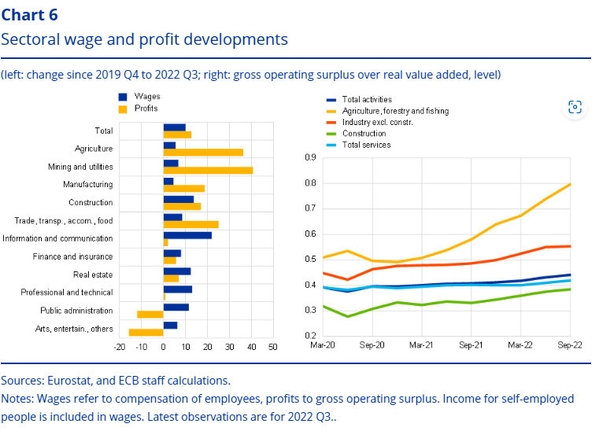The chief economist of the European Central Bank, Philip Lane, has said interest rates will have to be increased further, after the bank's meeting next week.
The ECB's Governing Council meets next Thursday, when it is widely expected to increase rates by another half a percentage point.
In a speech to students and staff at Trinity College today - where he taught economics for 18 years before becoming Governor of the Central Bank - the ECB's chief economist explained where the bank thinks underlying inflation is headed.
He said we're in "an awkward situation at the moment" where there are "lots of reasons" to expect inflation to come down sharply later this year but these "are not in the data quite yet".
He said it is "appropriate to raise rates further" beyond next week's Governing Council meeting when the European Central Bank is expected to increase rates by another half a percentage point.
That would bring base rates to 3% and most market observers believe euro area rates will peak at close to 4%.
Philip Lane said the current high level of food inflation is a concern for the ECB and that higher than normal wage increases could lead to higher inflation in services but he still expects core inflation to come down later this year.
The ECB has already indicated that interest rates will be increased by 0.5% at its meeting later this month.
Markets are betting that ECB interest rates could peak at 4% later this year. The bank's base deposit rate is currently 2.5%.
The next ECB Governing Council meeting is March 16.
In his speech today, Philip Lane said that apart from the standard measure of core inflation, which currently stands at 5.6% in February, the ECB's other underlying inflation indicators indicate a range of between 4.1% and 8.1%.
This indicates "a high level of uncertainty about underlying inflation," he said.
Another measure which takes three-month, seasonally-adjusted, inflation figures shows "a clear turnaround" in energy prices, some signs of deceleration for food inflation.
But he said "momentum for core inflation has not declined" and inflation in goods "remains strong".
This, Philip Lane suggested, means the easing of some supply chain bottlenecks has not made its way into retail prices. This is despite producer prices decreasing strongly since April last year.
He said this has enabled some firms to increase their profit margins but the ECB does not expect the "extraordinary conditions underpinning profitability in 2022" to persist, which should mean lower inflationary pressures.

The ECB also expects wage bargains to be higher this year, as pay deals "catch up" with last year's leap in inflation.






